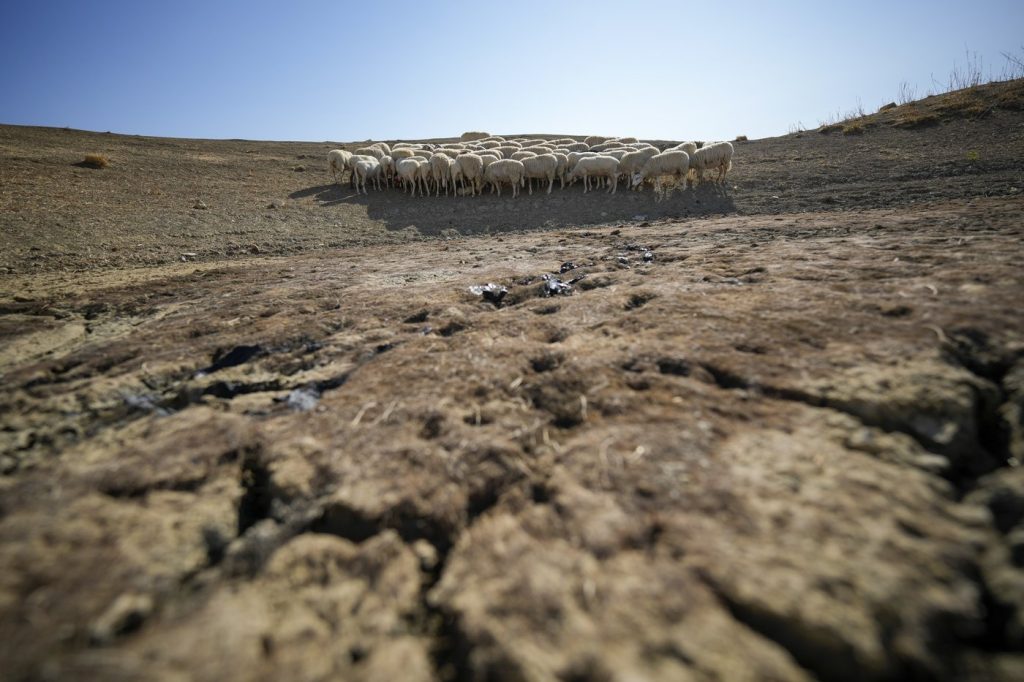BOGOTA, Colombia (AP) — An annual United Nations conference on biodiversity, which faced time constraints in its previous session last year, will recommence its discussions on Tuesday in Rome. The primary focus during these talks will be the allocation of financial resources that have already been pledged for biodiversity conservation, as well as strategies to significantly increase funding to protect plant and animal life globally.
The previous conference in Colombia, known as COP16, resulted in several important outcomes before adjourning in November. Among them was an agreement mandating companies that utilize genetic resources from nature, such as those developing pharmaceuticals from rainforest plants, to share benefits derived from these resources. Additionally, measures were introduced to enhance the representation of Indigenous communities and local populations in conservation discussions.
Despite the progress made, the two-week event was insufficient for completing all agenda items. These talks in Cali followed the landmark COP15 agreement reached in Montreal in 2022, which proposed 23 measures aimed at bolstering biodiversity preservation. A significant component of this framework is the goal of placing 30% of Earth's land and sea areas, along with 30% of degraded ecosystems, under protection by 2030.
Georgina Chandler, who leads policy and campaigns for the Zoological Society of London, noted the distinction between the Montreal agreement, which outlined "what" needs to be accomplished, and the necessity of COP16, which was intended to focus on "how" to implement these plans effectively and secure the necessary financing.
Linda Krueger from The Nature Conservancy highlighted that the session in Colombia lost its quorum as discussions dragged on, resulting in several unresolved key decisions related to financing, resource mobilization, and the planning and monitoring requirements of the Global Biodiversity Framework.
The ambitious financial target set is to generate $20 billion annually by 2025, rising to $30 billion by 2030. However, as of November, only $383 million had been pledged from 12 different nations or regions, including Austria, Canada, Denmark, France, Germany, Japan, Luxembourg, New Zealand, Norway, Province of Québec, Spain, and the United Kingdom.
During the upcoming talks, participants will explore the creation of a "global financing instrument for biodiversity," aimed at ensuring the equitable distribution of raised funds. A critical component of the discussions will revolve around strategies to increase funding levels effectively.
Both Chandler and Krueger acknowledged that the financing discussions at the Colombian conference proved to be particularly contentious. Krueger emphasized the importance of determining how to collect funding and distribute it fairly to areas that require immediate support.
Oscar Soria, the chief executive of The Common Initiative, expressed skepticism regarding the potential for substantially increasing financial commitments. He remarked, "We are completely off track in terms of achieving that money," indicating that vital sources of biodiversity financing are dwindling.
Soria further illustrated his concerns using a metaphor, suggesting that what was anticipated to be a successful Colombian narrative could devolve into a "tragic Italian opera," where consensus remains elusive, and all parties involved emerge as losers.
Susana Muhamad, the former environment minister of Colombia and the COP16 president, conveyed a sense of optimism, hoping for a significant message to emerge from the discussions in Rome. She remarked on the potential for agreement on essential issues, despite the fragmented geopolitical landscape and ongoing global conflicts, emphasizing the critical need to protect biodiversity and address climate change comprehensively.
Recent findings from the World Wildlife Fund and the Zoological Society of London revealed a staggering decrease of 73% in global wildlife populations over the past 50 years. Chandler underscored the fundamental importance of biodiversity for human well-being, citing its role in maintaining the quality of air and water, supporting food systems, and mitigating extreme weather events.
Chandler cautioned that deforestation in the Amazon not only affects local ecosystems but has widespread repercussions throughout South America, impacting rainfall patterns, food security, and soil integrity in neighboring nations. She stressed that the issue of biodiversity loss is far-reaching and requires urgent collective action to mitigate its effects.











